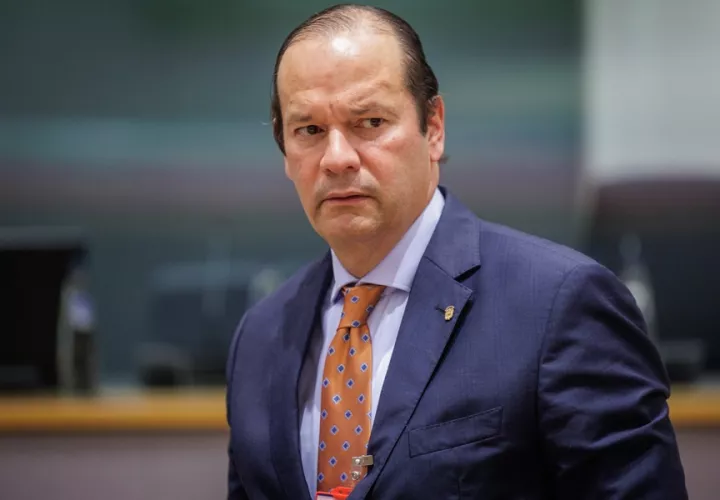The next US president and the affect on the dollar

By Lucas Boulden
THERE’S NOTHING like an election to create uncertainty. Any nation’s economy, judicial system and global standing is always affected by a change in leadership, and/or the ruling political party.
For traders and investors, looming uncertainty is never appreciated. Global forex, equities and futures markets are always influenced by the strength of the dollar, and the US presidential elections risks a change in direction of many of the super-power’s policies. Uncertainty is the result, and the US dollar will be impacted, but how?
Election Day in the US has always been the Tuesday following the first Monday in November. The nation will decide between Trump and Clinton on November 8, 2016.
Trading continues
All trading is open in the US on Election Day, and has been since 1984. Forex markets are open as usual, as is the NYSE and NASDAQ.
It is unlikely that the result of the election will have any instant effect on markets, beyond pure speculation based largely on polling. Election results are not available until after the market has closed. Exit poll data is available throughout the day, and can be used as a fairly accurate indicator of the result, thus negating the potential for insider trading.
Markets moves prior to election
The strength of the dollar is an important consideration and garners much rhetoric throughout the campaign trail. A strong dollar is associated with job creation, the reduction of the national debt and a strong economy. Candidates are therefore likely to promise a strong dollar. Their ways of achieving this are markedly different, though.
Trump
Republican candidate Donald Trump is a very rich man. His personal wealth has been estimated at being in between $4.5 and $10 billion. The question is, can he make his country rich too?
Trump’s assessment of the current US economy is bleak. This is not unexpected, as the current US president – Barack Obama – is a Democrat.
“We’re in a bubble,” said Trump in an interview with Good Morning America. “And, frankly, if there’s going to be a bubble popping, I hope they pop before I become president because I don’t want to inherit all this stuff. I’d rather it be the day before rather than the day after, I will tell you that.”
A later interview Trump seemed more confident about his abilities to improve what he claimed to be the USA’s stagnant economy. “I can fix it. I can fix it pretty quickly,” he told the Washington Post.
However, the greatest threat to the US economy under a Trump administration would result if he pushed through with his immigration platform.
Trump says he will build a wall between Mexico and the USA, and deport eleven million illegal immigrants. The American Action Forum has indicated that Trump’s immigration laws will cost the federal government around $500 million, and reduce the USA’s GDP by $1.6 trillion.
Trump’s tax plan is another matter. It has been called “one of the most dynamic and pro-growth tax plans out there,” by the Institute for Policy Innovation. Taxes will be cut by $12 trillion over ten years, stimulating an eleven percent growth in GDP, higher wages and more jobs.
Trump’s ‘off-the-cuff’ approach is also likely to cause dramatic fluctuations in the US economy as traders react to the ‘unguarded’ comments that he has become famous for.
Clinton
It’s a little more tricky to estimate what will happen to the US economy if Hillary Clinton becomes the country’s first-ever female president.
As this will see the extension of the Democratic Party’s control of the presidency, it’s likely that Clinton will maintain most of the economic policies put forwards by her predecessor.
Barack Obama took office during the worst economic crisis the world had seen since the Great Depression.
However, within a year he had helped overturn a 5.3 percent negative GDP growth rate. Unemployment rates have fallen from a ten percent peak in October 2009, to the current rate of just under five percent.
The Dow Jones stood at around 8,000 when Obama became president, and now stands around 18,000.
It has not all been good news though. The USA’s national debt is over one hundred percent of the country’s GDP. In 2008 this was less than forty percent.
“We can expect a high level of continuity with Obama’s policies if she’s elected,” said editor of the politics website Sabato’s Crystal Ball, Kyle Kondik. “While she has tried to move to left a little bit to satisfy the more populist wing of the party, I don’t think she is naturally more liberal on economic issues than Obama is, she might actually be less but she’s moved to where the party is, which has become more liberal over time.”
Clinton has stated her desire to increase the regulation of Wall Street (although not as much as her nominee rival Bernie Sanders who wanted to break up the US’s largest banks). A group of 170 economists though have signed a letter stating their opinion that Clinton’s plans for regulation will have little impact in minimising risk in the financial services industry.
Clinton also seeks to close tax law loopholes. At present, someone earning over $400 million a year can pay a lower rate of tax than someone on a salary of $50,000. She has also announced her support for a rise in the national wage from $7.25 an hour to $12, and eventually to $15.
The main issue facing Clinton is that the House of Representatives will remain in the hands of the Republicans. Many of her policies will have no chance of becoming law unless compromises can be found.
“Because the political situation will probably be much like it is now, her ability to pass landmark legislation would be blocked,” Kondik said. “If you thought Obama’s relationship with the House was bad, I don’t see why Clinton’s would be better. We could be looking at more stalemate.”
Conclusion
There’s only one certainty when it comes to the US economy, the US dollar and the presidential election, and that’s uncertainty. There will also be a knock-on to the global economy, making markets even more unsettled. This could not have come at a worse time, with the global economy also undergoing uncertain effects due to oil prices and the UK leaving the EU.
No matter who becomes the 45th president of the USA, forex, equities and futures markets all face an unpredictable future over the short-to-medium term at least.





